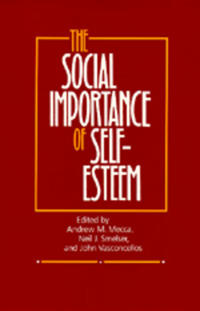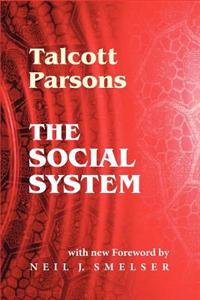Economy and Society (Häftad)
avTalcott Parsons, Neil J. Smelser
ISBN: 9780415605151 - UTGIVEN: 2010-10The Social Importance of Self-Esteem (Pocket)
avAndrew M. Mecca, Neil J. Smelser, John Vasconcellos
ISBN: 9780520067097 - UTGIVEN: 1989-09Is the well-being of a society dependent on the well-being of its citizenry? Does individual self-esteem play a causal role in chronic social problems such as child abuse, school drop-out rates, teenage pregnancy, alcohol and drug abuse, welfare dependency? In an attempt to answer these questions, t[...]
Social Paralysis and Social Change: British Working-class Education in the Nineteenth Century (Övrig)
avNeil J. Smelser
ISBN: 9780520075290 - UTGIVEN: 1991-09-03Neil Smelser's Social Paralysis and Social Change is one of the most comprehensive histories of mass education ever written. It tells the story of how working-[...]
Problematics of Sociology: The Georg Simmel Lectures, 1995 (Övrig)
avNeil J. Smelser
ISBN: 9780520206755 - UTGIVEN: 1997-02-25These skillfully written essays are based on the Georg Simmel Lectures delivered by Neil J. Smelser at Humboldt University in Berlin in the spring of 1995. It is a distillation of Smelser's reflections after nearly four decades of research, teaching, and thought in the field of sociology, the essays[...]
Social Edges of Psychoanalysis, The (Övrig)
avNeil J. Smelser
ISBN: 9780520214897 - UTGIVEN: 1999-03-19For several decades the writings of sociologist Neil J. Smelser have won him a vast and admiring audience across several disciplines. Best known for his work on social movements, economic sociology, and British social history, Smelser's psychoanalytic writings are less familiar to his readers. In fa[...]
Odyssey Experience, The: Physical, Social, Psychological, and Spiritual Journeys (Övrig)
avNeil J. Smelser
ISBN: 9780520258976 - UTGIVEN: 2009-03-05This bold and innovative book traces the phenomenon of the 'odyssey' experience as it shapes, informs, and defines our lives. Drawing on an astonishing range of examples, Neil J. Smelser focuses on how such experiences enhance our lives and provide us with meaning and dignity. The odyssey experience[...]
Reflections on the University of California (Övrig)
avNeil J. Smelser
ISBN: 9780520260962 - UTGIVEN: 2010-03-04These invaluable essays offer an insider's perspective on three decades at a major American university during a time of political turmoil. Neil J. Smelser, who spent thirty-six years as a professor of sociology at the University of California, Berkeley, sheds new light on a full range of the issues [...]
Usable Social Science (Inbunden)
avNeil J. Smelser, John Shelton Reed
ISBN: 9780520273566 - UTGIVEN: 2012-10-16Presenting substantive social science knowledge and indicating its relevance and applicability to decision-making, problem-solving and policy-making, this title looks at the big picture of why society at large demands and needs social-science knowledge, and how the academy actually supplies relevant[...]
Dynamics Of The Contemporary University (Inbunden)
avNeil J. Smelser
ISBN: 9780520275812 - UTGIVEN: 2013-04-05Analyzes a number of contemporary trends and problems that are superimposed on the already-complex structures of higher education, such as the diminishing public support without alterations of governance and accountability, the increasing pattern of commercialization in higher education, the growth [...]
Theory of Collective Behavior (Häftad)
avNeil J. Smelser, Gary T. Marx
ISBN: 9781610270847 - UTGIVEN: 2011-08The Social System (Häftad)
avTalcott Parsons, Neil J. Smelser
ISBN: 9781610271394 - UTGIVEN: 201209














